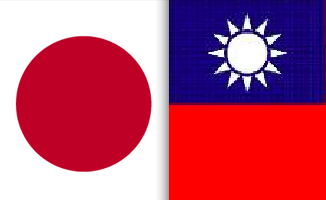“We are willing to make joint efforts with the U.S. to cohere to the dialogue and consultation mechanism and take each other’s concerns into consideration to better achieve mutual benefits.” — Chinese Premier Wen Jiabao in remarks following his meeting with Condoleezza Rice. Translation: Chinese Premier Wen Jiabao, in talks with U.S. Secretary of State Condoleezza Rice on Monday, called on the United States to take measures to stabilize its currency and prevent further slowdown of the global economy. . . China was taking measures to safeguard its stable economic development and hoped the United States would overcome its credit […]
China Archive
Free Newsletter
From Der Spiegel, a photo essay titled, China: From Mao to the Space Age. Quite an odyssey. The image of the couple on a bicycle under a bridge as tanks pass overhead the day after the Tiananman Square massacre is particularly haunting. So many of our projections about China’s rise are based on the assumption that the regime has won its gamble of offering prosperity and security as a trade-off for political liberalization. That strikes me as a premature conclusion. The China democracy movement probably came too early, both in China’s process of emergence and the world’s process of integration. […]

MELBOURNE — Australian Prime Minister Kevin Rudd will attend the opening ceremony of August’s Olympic Games in China, a move seen by some as a victory for economic common sense in bolstering relations with this country’s largest trading partner. But his decision is again highlighting the double standards Australia risks espousing on human rights and raising concerns over how his team has managed perceptions of his new government’s relationship with China. Rudd’s decision came just days ahead of Australia-based Rio Tinto announcing a massive rise in iron prices after signing a deal Monday with China’s Baosteel. Prices will almost double, […]
Another common China theme is the question of what its growing military budget reveals about its regional and global ambitions. Writing in the current issue of The Washington Quarterly, MIT’s M. Taylor Fravel argues that instead of arguing backwards from worst case scenario assumptions, we should use China’s increasing transparency about its military doctrine as a window into what’s driving its military buildup. He identifies five principle strategic goals found in speeches by Chinese military policy makers and Chinese military scholarship: regime security, territorial integrity, national unification (preventing Taiwan’s secession), maritime security and regional stability. He then analyzes the elements […]
We’re used to reading about China in the context of increasing competition for scarce natural resources, most notably energy, iron and eventually water. Now Gérard-François Dumont, in a French-language article over at DiploWeb, reminds us that as an indirect consequence of its demographic campaign to limit population growth, China’s facing a shortage of a pretty essential human resource: girls. According to Dumont, in every five-year age bracket from birth to post-adolescence (0-4, 5-9, 10-14, 15-19), there are at least five million more Chinese boys than girls. The potential internal consequences range from domestic societal instability, an aging population on the […]
The first I heard that New York City’s manhole covers were made in India was in this offhanded TPM post by Josh Marshall last November. Now it turns out that Indian-made manhole covers are being stolen (from America, but also from Europe and Mumbai) because of the Peking Olympics. 2point6billion.com’s got the details, including what to do about the safety risk of open sewer manholes.
According to RIA Novosti, Russia-China trade rose 44 percent year on year, to $48 billion last year. Not surprisingly, 90 percent of Russian exports to China consisted of energy products and raw materials, while 40 percent of Chinese exports to Russia were engineering or electronic products. Again, in some ways this kind of reinforcement of bilateral ties among strategic rivals represents a threat to America’s interests. But in other, broader ways, it lessens the potential for a conflict between them that could threaten the stability of the global order. With regard to the more specific question of how China’s growing […]
The alarmist scenarios about China’s rise would worry me a lot more if the Chinese were hellbent on using globalization to slowly insinuate traditional Chinese culture on an unsuspecting world. Outside of tofu and soy sauce, though, that doesn’t seem to be the case. Instead, the Chinese elites seem much more interested in drinking French wine and buying contemporary art (albeit primarily Chinese contemporary art for the time being). To me, the tensions that continued globalization will inevitably raise between China (the government) and China (the people) seem by far more potentially alarming than those it will raise between China […]
A few years ago, Hampton’s post about democracy promotion and terrorism probably ran the risk of being twisted by unscrupulous critics into an apology for the terrorists. That got me thinking about the logical inconsistency employed by those who argued for democracy promotion, while denying that any real political grievances feed violent Islamic extremism. Fortunately, those days are over, and we can now discuss things as they exist in the real world. Hampton already mentioned all the caveats necessary when considering democracy promotion. To which Dan Drezner will apparently be adding one more in Congressional testimony tomorrow: sovereign wealth funds. […]
Or as the Indian Defense Minister put it: We are not ignoring (these incidents). To a maximum extent, we will try to avoid confrontation. Both Indian and Chinese culture have strong traditions of active detachment (I’m thinking of the Vedic and Buddhist traditions). In a lot of ways, Asia’s future rests on their ability to transcribe it into a geopolitical principle.
With regard to what I called Earthquake Diplomacy, the flip side of the coin is the image management possibilities for the authorities of the country struck by the natural disaster. On the far side of the unfavorable range of the spectrum, you’ll find the Burma monsoon. Of course, Hurricane Katrina and the French heat wave of 2003 didn’t do either country any favors in terms of its public image, either. (I think reaction to the French heat wave, though, was more a global sense of “Whiskey Tango Foxtrot?” than outrage and horror. I had actually left France that summer for […]
Returning from their brief holiday hiatus, foreign policy committees on the Hill fielded testimony last week about U.S.-Chinese cooperation in Africa and Iran’s latest strategic aspirations in the Middle East. The Senate Foreign Relations Committee’s Subcommittee on African affairs began the week with a discussion of China’s involvement in Africa, and ultimately, its implications for U.S. foreign policy. James Swan and Tom Christensen, the deputy assistant secretaries of state for African affairs and East Asian and Pacific affairs, respectively, opened the hearing with a rather optimistic assessment of China’s African interests: In general, we see China’s growing activity on the […]
I suppose that in some ways it threatens our interests when emerging powers, like India and China, transform their rivalries into partnerships. But when you think of the regional conlict that it might end up preventing, along with the global consequences that might have, it’s hard not to think of it as a net plus, not just for the Indians and Chinese, but for us as well. The paradox of the emerging world is that longterm gains due to stability might depend on shortterm losses of influence. So be it. I’d call that a bargain compared to the costs of […]

The visit last month to China by Taiwan’s ruling Kuomintang (KMT) chairman Wu Poh-hsiung was the clearest example so far of the recent thaw in relations between the mainland and the island it claims as its own. The shift in atmosphere is in marked contrast to the tensions evident under the eight-year rule of former Taiwanese President Chen Shui-bian, during which both sides would periodically ratchet up tensions — China by threatening the use of force to bring Taiwan under its control and Chen by pressing for independence. China appears determined to capitalize on the new mood since incoming Taiwanese […]
You might have noticed that we updated the blogroll on the right hand side of the page. Among the sites we added is 2point6billion, and this post on how China’s telecom industry might be missing out on global opportunites by focusing on the domestic market is a good example of why. A quiet story covered from an interesting angle with thought-provoking implications. Good stuff. The speed with which China has managed to industrialize and compete on the global level is mind-boggling. There are obviously a lot of reasons for that, but one of them is certainly the Chinese leadership’s strategic […]
